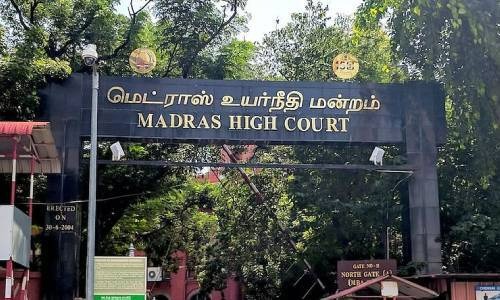 Bonafide Disciplinary Proceedings by Bar Council Have Statutory Indemnity Against Legal Action held Madras High Court in case of Bar Council of Tamil Nadu and Puducherry v. VK Sethukumar and ors . The main issue in the case was that the first respondent, attorney VK Sethukumar, was the target of a complaint of professional misconduct lodged by the fifth respondent against him before the Bar Council of Tamil Nadu and Puducherry. He was deemed to be at fault by the Bar Council, who also gave him some instructions. The Tamil Nadu Bar Council's decision was overturned after an appeal was filed with the Bar Council of India. The Bar Council made a request for the plaint to be rejected, but that request was denied.
Bonafide Disciplinary Proceedings by Bar Council Have Statutory Indemnity Against Legal Action held Madras High Court in case of Bar Council of Tamil Nadu and Puducherry v. VK Sethukumar and ors . The main issue in the case was that the first respondent, attorney VK Sethukumar, was the target of a complaint of professional misconduct lodged by the fifth respondent against him before the Bar Council of Tamil Nadu and Puducherry. He was deemed to be at fault by the Bar Council, who also gave him some instructions. The Tamil Nadu Bar Council's decision was overturned after an appeal was filed with the Bar Council of India. The Bar Council made a request for the plaint to be rejected, but that request was denied.The Bar Council's major argument was that all procedures before its Disciplinary Committee were regarded as judicial processes and that, as a result of Section 48 of the Advocates Act, such legal actions/orders were protected from any legal proceedings before the court. As a result, the Civil Court erred by accepting the plaint on file.
Mr. Sethukumar, however, argued that the benefit of Section 48 was only applicable where the activity was carried out in good faith. In this instance, the Bar Council had acted dishonestly. He cited a situation in which a Disciplinary Committee member had called the first complainant and requested that he attended the sessions. This, in Mr. Sethukumar's opinion would demonstrate the Disciplinary Committee's lack of good faith in starting the disciplinary process against him.
Although Mr. Sethukumar claimed that the committee members were biased, the court pointed out that the same could have been the case in order to guarantee the party's attendance throughout the hearings. The court added that any ulterior motivation for making such a call would not have been made public and would not have been done so with Mr. Sethukumar's knowledge. Therefore, the member of the Disciplinary Committee's actions could not be used to support a false intention.
The court stated that because the Bar Council's proceedings were quasi-judicial, a party who had been wronged could use the appeal remedies made available under the Advocates Act.
All deficiencies in the lower forum's order must be listed as grounds for appeal. There can therefore be no further grievances left out after there is no longer an appeal filed against the decision of the first appellate forum.
The appellate authority had found no evidence of the Bar Council's malice in the appeal that Mr. Sethukumar had filed. Furthermore, Mr. Sethukumar has declined to appeal the unresolved complaints to the Supreme Court. He had so consented to the Appellate Authority's order, which meant that his complaint had been duly heard and settled. Therefore, he was unable to assert that the State Bar Council's actions were ill-intentioned once more.
When defining the idea of merging, the court emphasized that when someone received a decision from an appellate authority, the lower forum's decision would have merged with the appellate forum's decision and lost its distinct identity.
As a result, the names of respondents 1 to 6, who were the Bar Council, its chairman, and its members, were struck out of the plaint because there was no basis for an action against them. The court emphasized that there was no statutory prohibition to proceed against the seventh respondent, the original complaint, and that it was up to Mr. Sethukumar to establish malice and the court noted that “The 1st respondent /plaintiff has not challenged the order of the Bar Council of Tamil Nadu before the Supreme Court. Since the 1st respondent/plaintiff had omitted to avail the statutory remedy by knocking at the next door in the hierarchy he accepted the order of the bar council, he is estopped from alleging bias or lack of good faith on the part of the defendants 1 to 6.”

